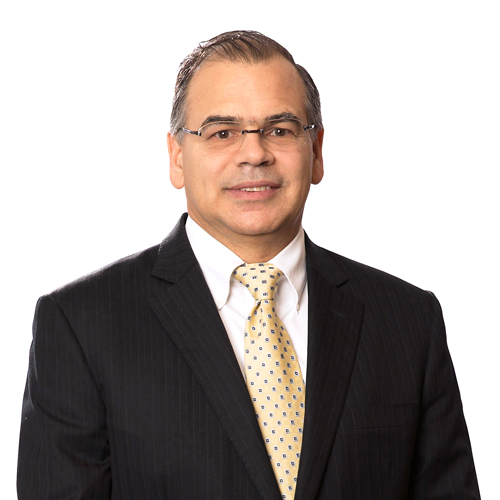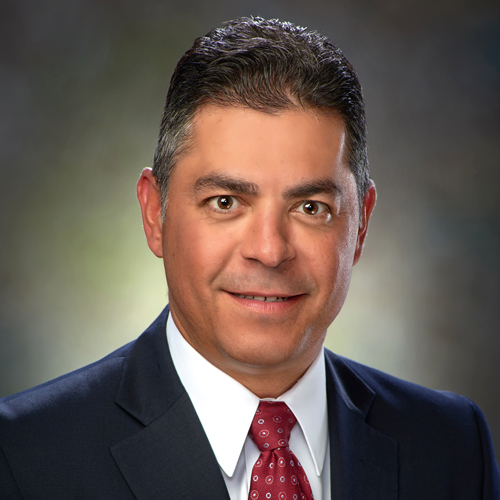David Castro began his legal career in the public sector. His first job after graduating from the University of Texas Law School was as an assistant district attorney in Houston’s Harris County.
“When Rusty Hardin, Harris County’s senior assistant DA, came to campus to recruit students, he said that new lawyers would get lots of trial experience working with [the county], which definitely interested me,” explains Castro, chief litigator for Hess today. “And unlike today, back in 1978, there wasn’t much difference between what the DA’s office and law firms paid.”
True to his word, Hardin had Castro handling his own cases as soon as he passed the bar. Over the course of the next 18 months, he was first chair on 24 cases, winning 23 of them. “One day, I had a dozen cases ready for trial in one court. That was the most anyone had ever heard for one lawyer in the misdemeanor morning docket.”
“You have to personalize your leadership style for everyone who reports to you. I learned that in my first job—at Fred’s Meat Market when I was in seventh grade.”
In addition to the heavy workload, he got to work with some of Texas’ legal legends, like Carol S. Vance, Ted Poe (who later became a judge known for his creative sentences—dubbed “poetic justice”—and is now a congressman), and Hardin. “Working there was the most fun I’ve ever had practicing law,” Castro notes, “but I eventually realized I didn’t want to limit myself to a criminal litigation practice.”
So, in 1980, while visiting his family in San Antonio, he interviewed for a position at Tesoro Petroleum and was offered the job on the spot. “I learned a lot about the oil and gas industry (O&G), civil litigation, and the transactional side of law and got to work on some big cases,” he says, “but in late 1982, the company was restructuring and contemplating going private, and I didn’t want to be the last one out the door.” Of the seven lawyers in the legal department at the time, all but one left. Tesoro has since recovered, reporting $41 billion in revenue in 2014.
Headhunters set Castro up with interviews at Amerada Hess in Tulsa, and he started there immediately. As a staff attorney, he handled basic O&G transactions, but was soon assigned to regulatory matters, becoming the in-house expert on oil price and allocation controls.
However, those rules—part of the Emergency Petroleum Allocation Act of 1973—and the industry were in the midst of a tsunami-like change. The Act was terminated by President Reagan during his first week in office in January 1981. Along with his repeal seven years later of the Crude Oil Windfall Profit Tax, the moves essentially marked the end of government regulation of the petroleum industry, which meant a redirect of Castro’s tasks. “I started taking on more litigation work, for both the upstream and downstream sides of the business,” he says.
Castro was appointed chief litigation counsel in 2010 and eventually put in charge of corporate records, too. “The latter represents the biggest sea change in legal work during my lifetime,” he says. “Technology has changed things dramatically. When I first started, we didn’t even have computers. Today, there isn’t a task in the company you could do without some computer skills.”
In fact, of the 12 people that report to Castro, just one is a lawyer (a fellow litigator). The rest of the team includes two e-discovery experts, two senior paralegals, a practice support manager, and three corporate records experts. “Those three are responsible for the taxonomy of our records—i.e. managing all our hard copy and electronic documents, being able to find them when they are needed, determining their proper retention periods, and properly disposing of them when necessary,” he says. “The dramatic proliferation of data has made this job increasingly important.”
Castro’s team members sport a variety of skill sets and temperaments. “You have to personalize your leadership style for everyone who reports to you. I learned that in my first job—at Fred’s Meat Market when I was in seventh grade,” Castro says. “Fred treated everyone with respect, was clear about his expectations, and made sure everyone understood their roles and responsibilities. And he never asked an employee to do something he wouldn’t do.”
Though all of Castro’s direct reports work in Houston, they handle matters all over the world.
“In venues where the judicial system is not as well established, robust, or transparent as the US, we try to handle disputes through arbitration, with clear guidelines agreed upon by all parties,” Castro says on navigating laws in so many different jurisdictions.
“We have a very lean in-house staff handling a very large docket, so my job is really to manage cases,” he continues. “I’m involved in strategic decisions regarding what we should do—determining the path of lawsuits, if you will—but I don’t handle actual litigation anymore. We rely on outside counsel for that.” He uses about 50 different law firms around the world—some big multinational firms, some specialized boutiques—but says they are attempting to establish a much smaller group of preferred providers.
A recent move that changed his job dramatically was the company’s divestiture of all of its downstream business in 2014. “Contrary to what most people think, when it comes to the marketing, retail, [and] gas station side of the business, you make more money off the incidentals like potato chips and beer than selling gas,” he says. Investors are pressuring more oil and gas companies to move in this direction, to become pure-play exploration and production companies. “Of course, exploration and drilling are extremely costly and challenging, especially when oil is down to $40 a barrel, but in a normal commodity environment, the profit potential is significant.”
Hess has also established a new, midstream limited partnership to help generate cash and weather the ups and downs of oil politics and the economy. This, along with the company’s impressive portfolio of explored and unexplored assets, provide what Castro believes is “a strong base for the future.”

